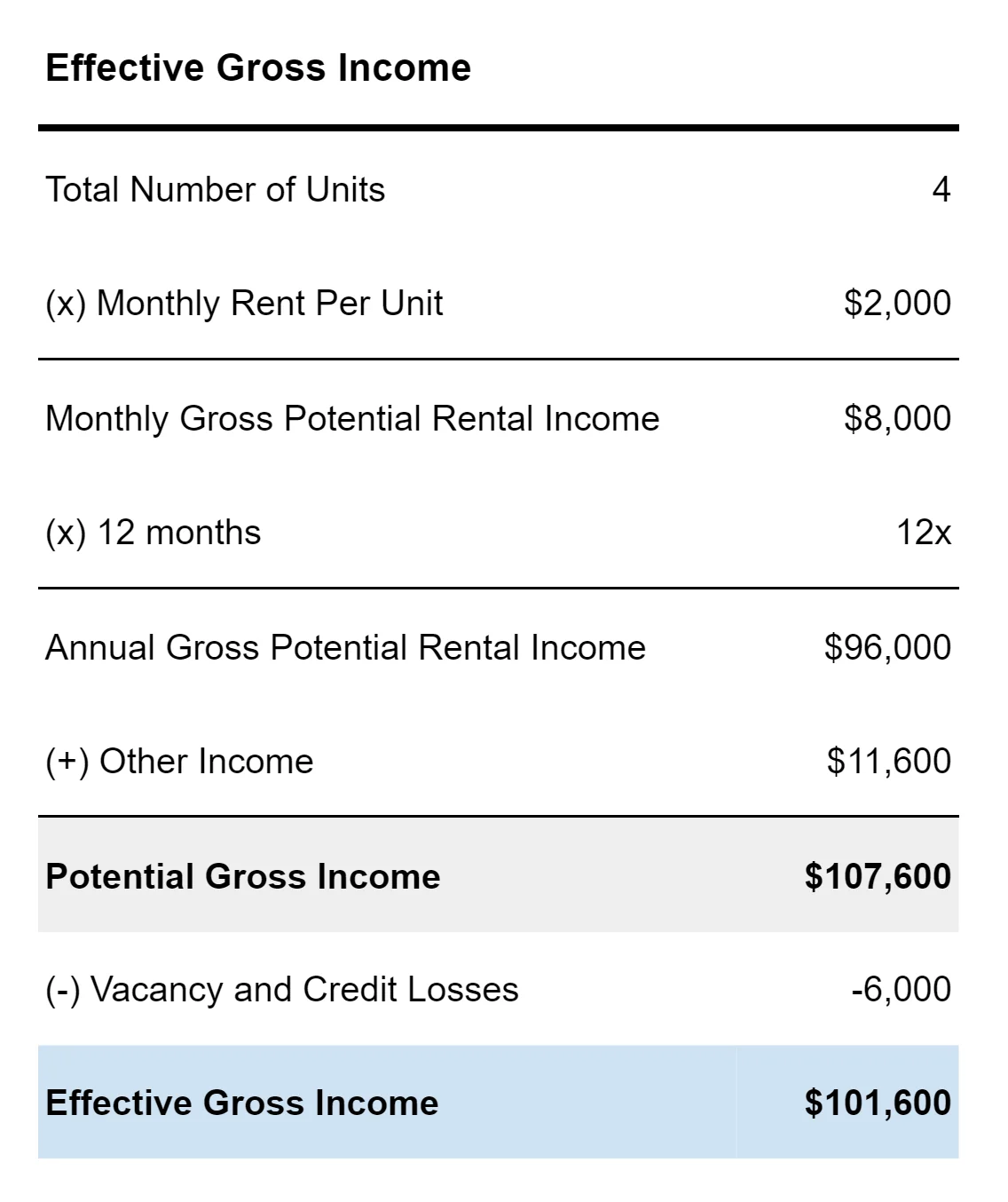Effective gross income and net operating income are both important metrics when determining the profitability of a rental property, but they have different purposes. A property owner should calculate both in order to get a full picture of their rental income and overall cash flow.
To better understand how to utilize the effective gross income formula, consider an example.
A four-unit property charges a monthly rent of $2,000 to each tenant, resulting in $8,000 of monthly rent in perfect circumstances.
The property includes laundry machines, vending machines, and parking spaces, which generate yearly profits of $3,500, $3,000, and $4,500, respectively. One unit has a dog, for which they pay a pet fee of $50 a month, or $600 per year. This other income provides $11,600 per year.
One of the units was vacant or non-productive for three months out of the year, resulting in a loss of $6,000.
The EGI would, therefore, be as follows:

Why Is EGI Important?
Understanding effective gross income helps you better identify a property’s income beyond just the monthly rent. In the real estate industry, investors calculate effective gross income in order to identify income producing properties and determine ways to boost their profits to compensate for the income lost by vacancy and credit losses.
The effective gross income formula is simple, and it goes hand in hand with determining the net operating income, as it encapsulates all the other services that create the overall profit. It’s also effective because it estimates real-world conditions for the property based on historical data, avoiding the pitfall of inflating net income.
Investors use effective gross income to calculate NOI, which is then used to identify the capitalization rate of real estate to see whether a property’s profit potential warrants the purchase price.
Key Takeaways
As a property owner, it’s important that you understand how to identify all of your profit so that you can better account for operating expenses and avoid losses.
The effective gross income gives you a holistic view of all your income streams, enabling you to get a good look at your potential income so that you can workshop ways to improve, such as investing in vending machines or charging tenants for extra storage space in a basement or secure outbuilding.
These are all low-cost ways to improve your profit margins, which will help you weather vacancies or non-payments from tenants.
When identifying your net operating income (NOI), you first calculate the effective gross income formula and then subtract your net operating expenses, such as taxes, insurance, and fees for a property manager.
If you have not yet ascertained vacancy and credit losses over several years of operation, it’s important to be realistic and rely on statistics from other investors in your area. You can also use official rental vacancy rates from the municipality, which generally include credit losses as well.
Effective gross income, in conjunction with net operating expenses, can identify the cap rate for a potential investment, ensuring that you’re not pouring money into an unprofitable venture.






